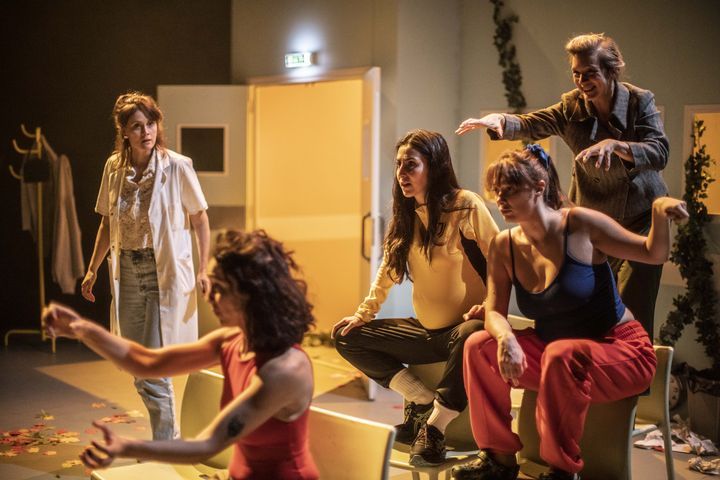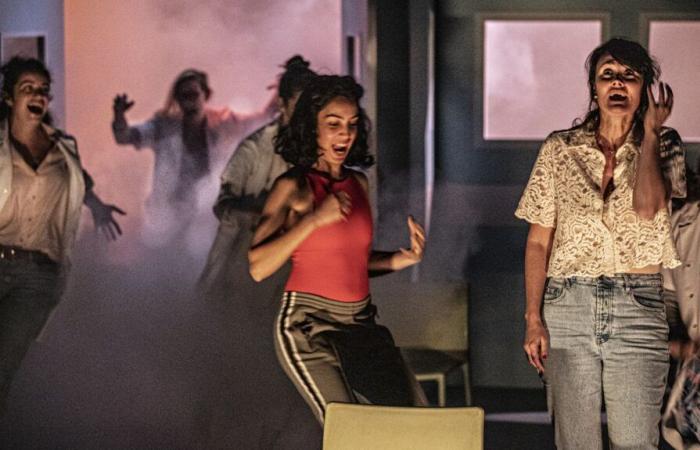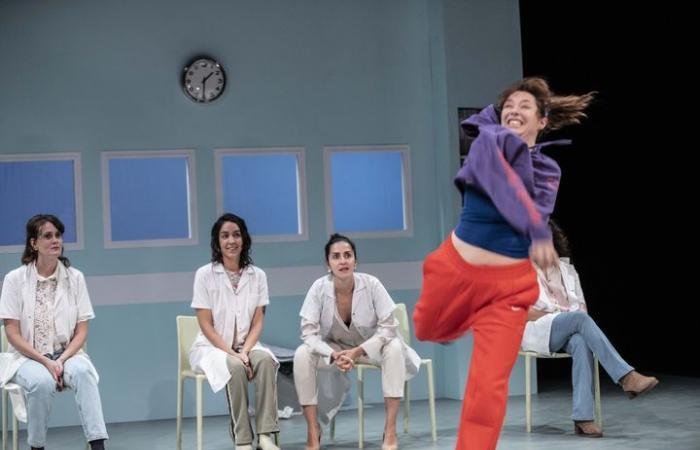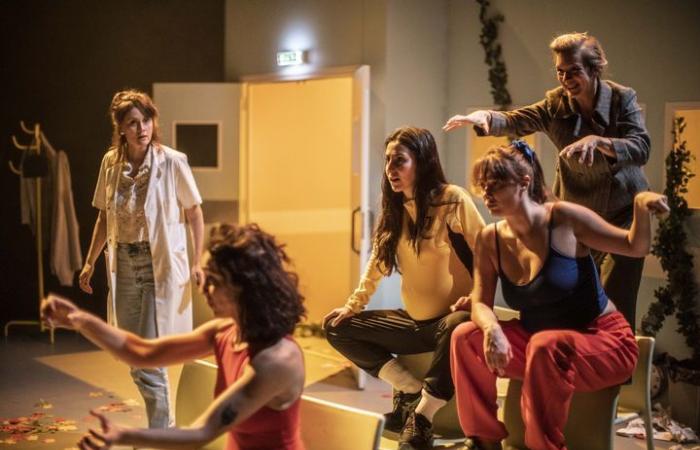No, therapy is not reduced to Lacan and his couch. The room Psychodrama by Lisa Guez shows us that theater, just like psychology, can be a real vector of healing: play, in all its forms, can heal inner wounds. Written in collaboration with the actresses of the 13/31 company, Psychodrama was presented in mid-November at the Théâtre Jean-Vilar in Suresnes, before moving to the Théâtre de la Cité in Toulouse on November 26, then at the Abbesses in Paris on December 3.
From the first scene, Fernanda, a psychiatrist in a center reserved for women, clearly lays the foundations: “It’s not theater, it’s therapy.” The story, striking in its simplicity, follows Jordane (Jordane Soudre), a young psychoanalyst who begins a training course in a therapeutic method using role-playing games to explore emotions and internal conflicts: “psychodrama”. She joins a unit in decline where she meets six passionate but exhausted colleagues. An environment – where the patients, all bearers of trauma, reveal poignant stories – which blurs the boundaries between reality and fiction.

A special feature of this production is that the six actresses on set will take turns playing the caregivers and the patients. A game of metamorphosis (physical and mental), through which Psychodrama questions human psychological fragility: each change of role highlights the vulnerability and suffering of all individuals, whether or not they wear the white coat.
“We can very easily move from this chair to this one”says Nelly, an exhausted caregiver reminding us that no one is safe from illness. The piece therefore shows the suffering of the patients as well as that of the caregivers, invisible and overloaded.
One of the strong points lies in the fluidity with which the actresses transform. The illusion works, with well-written characters, each marked by their demons. Through these multiple roles, the spectator is immersed in a game of mirrors where the border between normality and madness, care and suffering, becomes blurred. To the patient Jessica, who declares “I’m not normal, I’m crazy”doctor Valentine, head of the department, responds with a question that challenges the spectators: “Is suffering not being normal?”
In this drama, laughter is present at every moment. This humor, which also has a healing power, runs through the entire piece and becomes an emotional driving force for two hours and fifteen minutes. What begins with smiles quickly evolves into an exploration of psychological distress, both taboo and universal. Emotional dependence, addiction, schizophrenia: so many intimate wounds which confront the public with their own torments, holding them powerfully until the end. We are stunned, shocked and shaken by the waltz of the actresses. The public is in consultation and the diagnosis is shocking.
The fruit of a collective approach nourished by improvisations and advised by a psychologist, the piece Psychodrama does not just portray roles, but gives life to deeply human characters, torn between the desire to care and helplessness in the face of a care system that is falling apart. The psychiatric center thus becomes the crossroads of two broken worlds: that of individuals bruised by life and that of a public health system running out of steam.
With inventive staging and actresses of rare power, Lisa Guez delivers a work that goes beyond the boundaries of the theater, a cry of distress and a call for recognition of humanity in suffering. At the end of the performance, the audience, including health professionals (a psychiatrist praised the “credibility” of the play at the end), gave a standing ovation, welcoming the accuracy of the game and the characters.


“Psychodrama”, conception and direction by Lisa Guez, with Fernanda Barth, Valentine Bellone, Anne Knosp, Valentine Krasnochok, Nelly Latour and Jordane Soudre. From November 26 to 30, 2024 at the Théâtre de la Cité, CDN in Toulouse Occitanie and from December 3 to 12, 2024 at the Théâtre de la Ville – Les Abbesses in Paris.








